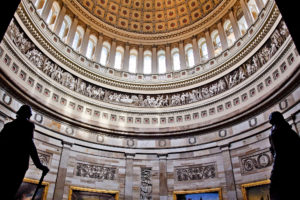Tearing Down Terrorist Content Online
Scholar urges policymakers to impose liability on platforms that spread terrorist content.
Pushing Social Media Platforms to Self-Regulate
Social media companies may increase content oversight if motivated by federal incentives and liabilities.
The Social Responsibility of Social Media Platforms
Scholar weighs options for putting an end to harmful speech on social media platforms.
What Is the Future of Social Media Regulation?
Justice Thomas signals the potential for regulation of social media platforms and their power over speech.
Addressing Big Tech’s Power Over Speech
Antitrust has a role in addressing the considerable power social media companies possess over speech.
Making Social Media Self-Regulation More User-Centered
Scholar argues that social media companies should be more democratic in restricting political advertisements.
Regulating Beyond the Christchurch Call
International response to Christchurch attack shows the complexity of restricting online extremist content.
Antitrust and the Future of Big Tech
Technology giants face growing scrutiny from Congress and regulators over their dominance.
Put the Phone Down
Scholar argues that the government should regulate app developers to prevent technology addiction.
Should Regulators Shame Companies into Compliance?
Naming and shaming can serve as a legitimate, efficient, and democratic regulatory approach.
Correcting a Persistent Myth About the Law that Created the Internet
Scholar argues that section 230 of the Communications Decency Act applies to internet platforms regardless of their “neutrality.”












